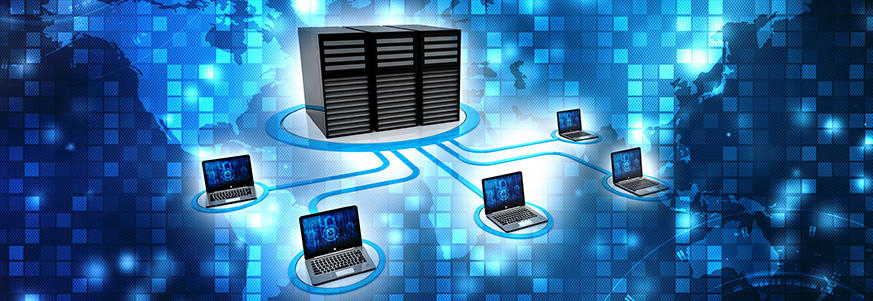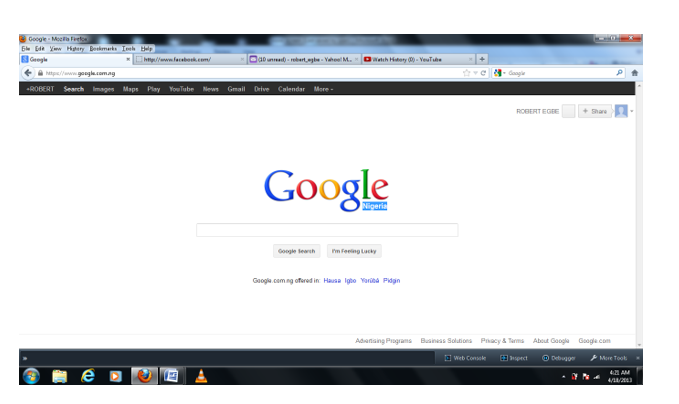Back to: DATA PROCESSING SS 3
Welcome to class!
In today’s class, we will be talking more about networking. Enjoy the class!
Networking II

Benefits of networking
- It allows file sharing and remote access.
- Sharing resources such as printers, fax machine etc.
- Provides high speed for sharing and transferring.
- Networking provides security such as a password.
- Provides centralized software management
- Provides internet access sharing.
Internet
The Origins of the internet dates back to 1960s when the United State funded research projects of its military agencies to build a robust, fault-tolerant and distributed computer network.
The internet is a global system of interconnected computer network that use the standard internet protocol suite (TCP/IP) to serve billions of users worldwide. It is a network of networks that consists of millions of private, public, academic, business, and government networks of local to global scope that is linked by a broad array of electronic and optical networking technologies. The internet carries a vast array of information resources and services, most notably the interlinked hypertext documents of the World Wide Web (www) and the infrastructure to support electronic mail. One of the simplest definitions of the internet is that it is a collection of computer linked together.
Basic terms associated with the internet
- Gopher: enable you to access another computer on the internet.
- Browse: This is a term used to refer to the process of accessing and viewing web pages on the internet.
- Browser: A browser is also called a web browser. It is a software application that is used to access and view web pages on the internet. Most browsers can be used to send and receive an email, connect to web-based email services and read newsgroup. Some popular browsers are Internet Explorer, Opera, Safari, Chrome, Mozilla etc.
- Chart rooms: These are virtual communication platforms where many people keep in contact with family, friends and classmates. Some websites that have chartrooms are Yahoo, AOL, MSN, Google etc. Some chartrooms allow the use of a webcam to view each other and communication of emotions using chart emoticons.
- Cyber Space: This term is used to describe internet networks and www.
- Download: This is a process of retrieving information from the internet onto a personal computer. A user can download files, music, software or games onto a personal computer.
- Electronic mail (E-mail): A mail that is sent and received through the internet is called an e-mail. For a user to send and receive a message on the internet he/she must have an email address. Example of an e-mail address is [email protected].
- Home Page: This is the start page of any website. It refers to the initial or main page of a website that loads when a user specifies the URL of a website in a web browser.
- HTML: HTML a short for Hyper Text Mark-up Language is a computer language with some sets of markup symbols and codes that are used for building websites.
- Protocol: It is the standard or set of rules by which computers communicate over the network.
- HTTP: HTTP stands for HyperText Transfer Protocol. It is the protocol for transferring web pages on the web.
- ISP: Internet Service Provider is a company that provides individuals and companies access to the internet. Examples of ISPs in Nigeria are IPNX, Linkserve Limited, Cobranet Limited, Swift Networks Limited, etc.
- Upload: This term refers to the process of transmitting a file from a local computer onto the internet. It is the opposite of download.
- Website: The website is a collection of web pages that are related to an entity, activity or event. The beginning page of a website is called the Home page.
- Web Page: A web page is an HTML document or resources of information on a website that is presented as a page.

Some examples of websites
Information technology organizations:
HIV/AIDS control organizations:
Educational bodies:
Drug control agencies:
Individual website:
Evaluation
- Define internet.
- Mention 5 terms associated with the internet and explain them.
Internet main browser
The common internet browsers are:
- Internet Explorer
- Firefox
- Opera
- Netscape Navigator
- Google Chrome
Internet Explorer:
Internet Explorer is a graphical web browser developed by Microsoft.

Firefox:
Mozilla Firefox is a free and open-source web browser managed by Mozilla Corporation. Firefox is one of the widely used browsers.
Opera:
The opera browser is a web browser developed by opera software. It is the smallest and fastest browser in the world.
Netscape Navigator:
Netscape Navigator browser is a product of the Netscape Communication Corporation.
Evaluation
- List 4 examples of a browser
- Explain them
Features of the main browser
The common features of the main browser are:
Title Bar:
The title bar is at the very top of the browser windows. In both Firefox and Internet Explorer web browser is normally seen on the blue bar at the top. The title of the web page is displayed on the title bar.
Menu Bar:
The menu bar contains menus such as File, Edit, View, History, etc. it is the bar underneath the title bar.
ToolBar:
The toolbar and its icon are displayed at the top of the browser windows underneath the menu bar. This is where the Back button, the Home button, the Refresh button, etc are found.
Address Bar:
The address bar is the box at the top of the browser windows that displays the entire URL or web site
address.
Benefits of the internet to society
The internet plays a major role in the society in the following application areas:
- Education/E-learning: With the internet, people can get educational materials and read them in preparation for examinations, or use them for school assignments. The internet also enhances electronic learning whereby courses or subjects are taught online using audio and, or visual material.
- E- Registration: The internet provides users with facilities for online registration of examinations like WAEC, NECO and JAMB.
- Entertainment: The internet kills boredom and enhances leisure by providing its users with the latest entertainment in the form of movies, games, news, and many more.
- Communication: This is one of the key benefits of the internet. The internet provides many means by which users can communicate with friends, family, colleagues, and more through emails and other social sites like Facebook, yahoo massager, 2go, twitter etc.
- E-Banking: The internet can be used as a tool to carry out transactions with banks irrespective of the user’s location.
- E-Commerce: Internet is also a tool for E-commerce. It allows users to buy and sell their goods and services online regardless of their location.
Internet security
Internet security is the practice of protecting and preserving private resources and information on the internet. It is a protection to your personal computer from any harmful and malicious spyware.
Its objective is to establish rules and measures to use against attacks over the internet. Different methods have been used to protect the transfer of data including, encryption, use of antivirus software, using a firewall, use of passwords that are not disclosed to unauthorized users etc.
Abuse of internet
Internet abuse is the inappropriate usage of the internet. Below are some of the common internet abuse:
- Computer crime: A computer crime is any unlawful activity that is done using a computer. This definition can extend to traditional crimes that are committed with the machine, such as counterfeiting money, but it also includes more tech-savvy crimes, such as phishing or logic bombs use of computers in criminal activity.
- Cyber-bulling: Is the use of technology to harass, threaten, embarrass, or target another person.
- Spam: Unsolicited e-mail often of a commercial nature.
- Malware: These are software designed to harm a user’s computer, including computer viruses. Malware is short for malicious software which includes computer viruses, worms, Trojans, adware, spyware, crimeware, scar ware, rootkits, etc.
Communication channel/media
There are kinds of channels/ media used to transmit data. Transmission media are physical paths for carrying information like a pair of wire. These are telephone lines, coaxial cable, fibre optic cable, microwaves and satellite.
- Intranet: This is a private network within an organization that resembles the internet.
- Extranet: It is a private network that connects more than one organization. It is actually intranet that is partially accessible to authorized outsiders.
General evaluation
- Define Networking.
- State four benefits of Networking.
- Differentiate between intranet and extranet.
Weekend assignment
- One of the disadvantages of the hierarchical network is that it depends heavily on the hub and its failure affects the entire system. (a) entire system (b) part of the system (c) single system (d) partial system.
- One of the following is a communication medium. (a) coaxial cable (b) book (c) typewriter (c) windows (d) episode.
- This is a term used to refer to the process of accessing and viewing web pages on the internet is called (a)Browse:
- is a private network within an organization that resembles the internet. (a) internet (b) Intranet (c) WAN (d) server
In our next class, we will be talking about the Computer Virus. We hope you enjoyed the class.
Should you have any further question, feel free to ask in the comment section below and trust us to respond as soon as possible.
